Are you about to invest in the commercial real estate market in Seattle? Become a more seasoned hand at commercial real estate investment. Take a look at these tips for investors who are considering a move into commercial real estate.
 1. Take Your Time and Consider Your Choice
1. Take Your Time and Consider Your Choice
To invest in a commercial property, it’s helpful to know the business that you want to invest in. For example, if you’ve decided to purchase a warehouse, you will be more successful if you know about the ins and outs of managing a business that uses a warehouse space. Focus on a single investment type to allow yourself to accumulate knowledge in that area.
Take your time, consult the professionals, and take advantage of the services of a professional property management company. A commercial property is a large investment that requires a lot of consideration before you buy.
2. Look at the Community†
Just as you would look at the community around a residential property, you need to be especially conscious of the community around the commercial property you want to buy. This is because the community determines the value of that property to a large degree. According to Realty Biz News, “besides the immediate cash flow, you need to understand what is likely to happen to commercial real estate in the surrounding area in the coming years.”
If the community is faltering and it looks like businesses are going under, this might not be the best place to invest. If the community is thriving and businesses are opening, consider investing. Study the neighborhood by visiting open houses of both businesses and residences to get a feel for the area. Seattle has many distinct areas with different cultural histories, and it has a growing tech sector. Make sure that your Seattle property investment will fit in with the many changing communities in the area.
3. Make a Plan to Minimize Vacancies†
Think beyond the purchase; Consider how you will make a profit from this business instead of simply acquiring a property. Commercial properties don’t automatically make money. You need to find the right businesses and ensure that they stay around. This means that you need to think about how to improve your properties, keep your tenants happy in a safe environment, and navigate potential conflicts between tenants. You also need to consider how your square footage will be used: your income depends on the square footage of your property. If this seems like it’s too much, working with a management company can help you coordinate your tenant management.
4. Have Money and a Financial Plan in Hand†
In a fast-moving market, you need to do your research beforehand and have the cash available to close the sale. According to Investopedia, “commercial property lenders like to see at least 30% down before they’ll give a loan the green light.”
Know your NOI as well. The NOI or Net Operating Income is the first year gross operating income minus the operating expenses. The NOI of your property should be positive so that you consistently make money instead of losing it.
Carefully consider the state of the property. Is it turn-key ready or will you need to invest in repairs or updates before the property is ready for tenants?
If extensive renovations are needed, you won’t see rental money for a while after your purchase and the repair costs will be on top of the loan payments and other expenses. Make a short and long-term plan to manage repairs before you buy, especially if you’re purchasing a fixer-upper property.
At Lori Gill and Associates, we’re experts in real estate in Seattle. We know this city, and we’re happy to share that knowledge with you. Are you curious to learn how you can better manage your real estate in the Seattle area? Connect with us today.

 1. Take Your Time and Consider Your Choice
1. Take Your Time and Consider Your Choice

